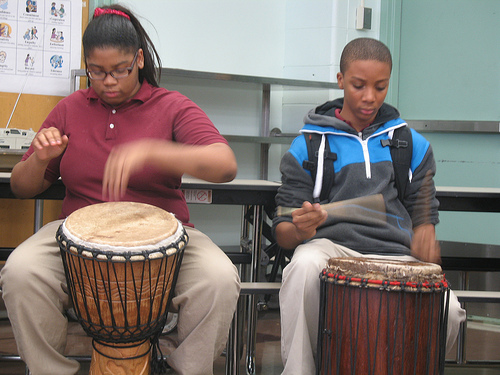Opening minds in music: Why every tune CAN strike a chord
This morning I am loving this article on the BBC concerning music – which types of music please us, which don’t, and why. Here’s what researchers in Australia figured out: Cultural ideas of what sounds “right” can be relaxed and expanded with just a bit of training. And fascinatingly enough, whereas professional/trained musicians might be harder to convince, untrained musicians become more open-minded about more kinds of music fairly quickly, with just a dash of education.
According to this research, your predisposed tastes have everything to do with culture. If you grew up in a Western society, the music of Mozart (pretty universal example) is probably pleasing to your ears. That’s because it features the kind of intonation that your society applauds. If you grow up in a non-western culture that emphasizes dissonance and different types of rhythms and sounds, your tastes will develop differently. Makes sense, right?
The implications for arts education and the things we do at Urban Gateways are huge. We can take this lesson, start with music instruction, and go bigger from there. If we introduce school-age kids with little or no music training to musical stylings from all over the world, this research would actually imply that it changes their tastes on a psychological level, makes them more accepting of types of music they haven’t heard before…and I’m willing to take it a step further and say that it’s a lesson in open-mindedness on a broader scale. By introducing these kids to world music and sounds (see one such residency right here, at Kershaw School) that they don’t hear on the radio or from their parents, we are actually broadening their scope of what is “good” music. It’s true, science says so!
Have you read any awesome arts-related research that you’d like to pass along? Anything at all that might have something to say about arts education? Share it below!
